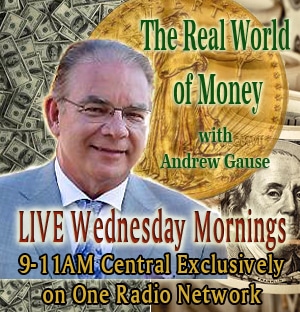March 3 (Bloomberg) — Federal Reserve Chairman Ben S.
Bernanke said policy makers may need to expand aid to the banking
system beyond the $700 billion already approved and take other
aggressive measures even at the cost of soaring fiscal deficits.
“Without a reasonable degree of financial stability, a
sustainable recovery will not occur,” the Fed chairman said
today in testimony prepared for the Senate Budget Committee.
“Although progress has been made on the financial front since
last fall, more needs to be done.”
Bernanke’s comments suggest he sees a role for bigger
federal outlays as the Obama administration seeks congressional
approval for a budget of $3.55 trillion for the fiscal year
beginning in October. President Barack Obama has already signed
into a law a $787 billion economic stimulus package of tax cuts
and government spending.
Obama’s first budget seeks standby authority for as much as
$750 billion in new aid to the financial industry. Whether those
funds will be needed “depends on the results of the current
supervisory assessment of banks” and the evolution of the
economy, Bernanke said.
Bernanke said policy makers would have “preferred to
avoid” what is likely to be the largest ratio of federal debt
compared with gross domestic product since the end of World War
II, and he urged lawmakers not to lose sight of fiscal
discipline.
Cost to Budget
“But our economy and financial markets face extraordinary
challenges,” and doing less now would eventually prove to be
more costly, he said. “We are better off moving aggressively
today to solve our economic problems; the alternative could be a
prolonged episode of stagnation” that would cause budget
deficits to swell further, increase unemployment and undermine
incomes “for an extended period.”
The Fed has more than doubled its assets to $1.9 trillion
during the past year by expanding loans to banks, launching
programs to revive commercial paper and other markets and backing
the merger of Bear Stearns Cos. with JPMorgan Chase & Co.
The 55-year-old Fed chairman told the Senate Banking
Committee last week there’s a “reasonable prospect” the
recession will end in 2009 “if the actions taken by the
administration, the Congress and the Federal Reserve are
successful in restoring some measures of financial stability.”
Stock Slump
Fed policy makers face headwinds from equity markets, with
the Standard and Poor’s 500 Index falling this year by 22.5
percent and the S&P Financials Index tumbling 44.2 percent.
The government is still trying to stabilize large financial
institutions such as Citigroup Inc. and insurer American
International Group Inc. Shares of Citigroup traded at $1.33 this
morning at 9:33 a.m., and the government expanded its aid to AIG
yesterday after the company reported a fourth-quarter loss of
$61.7 billion, the worst loss by any U.S. corporation.
The spending blueprint delivered to Congress last month
forecasts government spending this year of $3.94 trillion, up 32
percent from a year ago. That would yield a record deficit of
$1.75 trillion in the year ending Sept. 30, equal to about 12
percent of the nation’s gross domestic product, the highest since
World War II. Government spending of $3.55 trillion next year
will include about $350 billion approved as part of the stimulus
package.
Stimulus Impact
“By supporting public and private spending, the fiscal
package should provide a boost to demand and production over the
next two years as well as mitigate the overall loss of employment
and income that would otherwise occur,” Bernanke said.
Still, the size of the impact on the economy from government
spending is “subject to considerable uncertainty,” Bernanke
said. Consumers may decide to pay down debt or save their cash
rather than spend it, he noted.
January forecasts by Fed officials suggest “a full recovery
of the economy from the current recession is likely to take more
than two or three years,” Bernanke told lawmakers last week.
The U.S. unemployment rate rose to 7.6 percent in January,
the highest level since 1992. Job losses spanned almost all
industries from trucking and construction to retailing and
finance.
Fed officials expect unemployment in the fourth quarter to
average 8.5 percent to 8.8 percent, which would be the highest
since 1983, according to their January forecasts. Gross domestic
product will contract 1.3 percent to 0.5 percent, and inflation
will run at just 0.3 percent to 1 percent this year, their
projections indicate.
Fed Forecasts
Fed officials don’t see labor markets improving until 2011,
when growth forecast at 3.8 percent to 5 percent reduces the
unemployment rate to a range of 6.7 percent to 7.5 percent.
Economic models used by Macroeconomic Advisers LLC show the
Obama stimulus package could keep the jobless rate at about 8.8
percent instead of the 9.5 percent rate that would result without
the package.
The Fed is stepping up efforts to stem the worst credit
crisis in seven decades by expanding a program aimed at
supporting consumer and business loans to $1 trillion from $200
billion and adding commercial real estate. It is also buying $600
billion of debt sold by government-backed housing finance
companies and mortgage-backed securities they guarantee.



'Bernanke Says U.S. May Need to Expand Bank Rescue' has no comments
Be the first to comment this post!